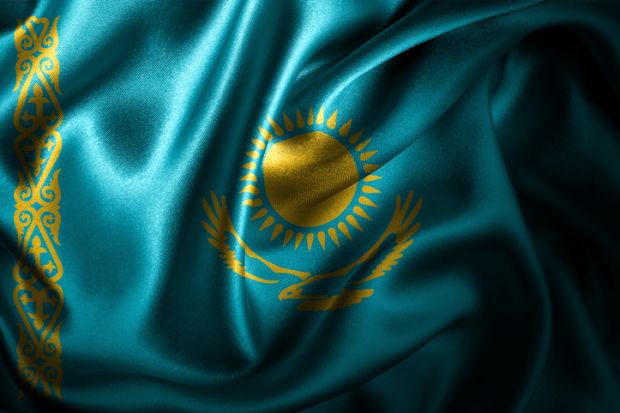Weeks after deadly protests rocked Kazakhstan, academics are reflecting on recent events and government plans for systemic reform, which have put a spotlight on higher education.
In early January, simmering unrest in the country bubbled over, prompting 50,000 people to take to the streets to protest at Kazakhstan’s long-deteriorating political and economic situation and widespread corruption.
By mid-month, an estimated 225 of them had died – marking the deadliest event in country’s 30-year history since it declared independence from the Soviet Union.
The events shocked Kazakhs, forcing a reckoning in the country’s ruling party, including a transfer of power from the country’s former president Nursultan Nazarbayev to its current head, president Kassym-Jomart Tokayev, who has vowed to tackle the causes of unrest.
As policymakers prepared for overhauls, academics shared with Times Higher Education their hopes for the coming reforms.
“It was a very horrible situation – it changed everything,” said Sholpan Yessimova, vice-rector for academic innovations and graduate studies at Akhmet Yassawi University, in south-western Kazakhstan, of recent protests. But she wondered whether there might be a silver lining.
“The situation is giving opportunities and a new chance to changes in the HE system,” she said, adding that “we need to change, and this is being pushed by the president now”.
For decades, Kazakhstan’s universities have been plagued by low salaries, lacklustre budgets and outdated course material – problems that date back to a sudden proliferation of institutions when the country shed its Soviet education system in 1991. While its government has taken some steps to address these in recent years, the issues have largely remained unchanged.
Dana Abdrasheva, a fellow at the United Nations Educational, Scientific and Cultural Organisation’s (Unesco) International Institute for Higher Education in Latin America and the Caribbean, also expressed hope that the protests would force policymakers to tackle “the root of issues”, adding that young, jobless men had played a large role in the recent uprising.
“They might not have gotten good-quality education that allows them to get a good, decent employment,” she said. “I think that should be addressed now in this whole discussion around protests.”
But Ikboljon Qoraboev, an associate professor of international relations at the Higher School of Economics of M. Narikbayev Kazguu University, cautioned against drawing too strong a link between recent unrest and higher education outcomes.
“Indirectly, everything can be linked, but unemployment is not because there are a lot of jobs and not enough qualified employees – the problem is lack of jobs,” he said, noting that despite the availability of scholarships in Kazakhstan, many young people still preferred to go to China or Russia to study and pursue their careers.
But he too said that the government appeared to be paying attention.
In a 21 January meeting with business leaders, Mr Tokayev continued to blame “terrorists” and “conspirators” for the uprisings, but acknowledged the urgent need for societal change, including addressing a growing gap between the country’s rich and poor. In his address to parliament a week earlier, the president also specifically mentioned access to universities.
“One of the milestones for trying to understand how the government will behave is the January 11 speech by Tokayev to parliament,” said Dr Qoraboev, noting that “many issues” were on the menu, including social justice, high unemployment and corruption.
But he did notice that higher education was also singled out, something he said was notable: “Higher education has this transcendental importance.”
Emma Sabzalieva, a senior policy analyst at Unesco who writes a blog about HE in central Asia, agreed. While she said the verdict is out on how the government will perform in coming months, one thing is clear.
“If you want to think about bigger picture, it does tell you a lot about the role of HE is seen to play or should play in the future,” she said.
Register to continue
Why register?
- Registration is free and only takes a moment
- Once registered, you can read 3 articles a month
- Sign up for our newsletter
Subscribe
Or subscribe for unlimited access to:
- Unlimited access to news, views, insights & reviews
- Digital editions
- Digital access to THE’s university and college rankings analysis
Already registered or a current subscriber? Login








